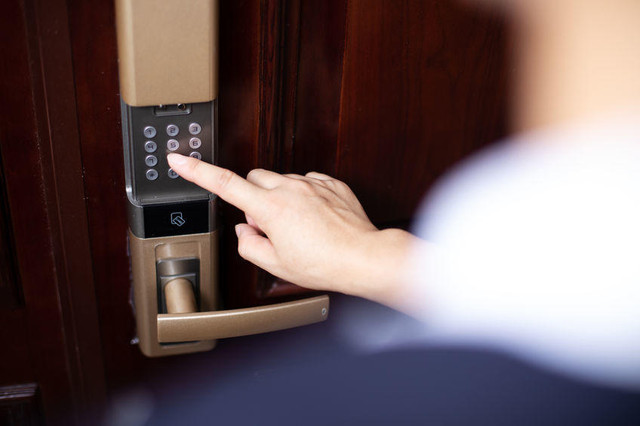Pros and Cons of Smart locks: What Professional Locksmiths Need to Know
Posted by ZeroDayGear.com on Mar 20th 2020
Smart locks and smart home devices have become popular recently, with more home and office security systems and appliances adopting wireless and keyless access. For some, it is a matter of convenience, while others may prefer such technology. Using a combination of physical keys, access codes, and smart devices, individuals have multiple ways of accessing their locking system. 
The smart lock market has grown to $3.6 billion by 2019 and as technology continues to develop, it is bound to increase further in the coming months. Early adopters have replaced traditional locks with smart locks, taking control of their home security even when they are away from home. In addition to being able to unlock and lock your front door remotely, there many other benefits to upgrading a facility with smart locks.
Pros of Having a Smart Lock
One immediate perk smart locks will provide is the ease of access a client will experience when entering the premises.
He or she will no longer need to worry about forgetting house or office keys or inadvertently get them stuck in the lock. Instead the door unlocks virtually instantaneously using a code, smartphone, or key FOB.
Perhaps the most important feature of smart locks is the ability they give someone to monitor the home or office and have a record of who entered when.
Users can also lock and unlock any smart lock equipped door remotely. Gone are the days of forgetting whether someone forgot to lock the door and returning to ensure he or she had done so.
If many people constantly go in and out, but the door must stay locked, each user can have his or her own access code. The owner will know will have instant access to a list of who opened the door and when.
For homeowners, a person can remotely check to see if children have arrived safely or monitor the comings and goings of guests.
If the owner expects a guest, babysitter, or workman, each can be given a temporary code for them to access the entrance. Instead of leaving keys with a neighbor or under a flowerpot, the client can provide a unique, one-time use code that expires after the visit. These codes can be changed regularly so that only specific people have access to the property.
Instead of changing your locks to prevent an old tenant or property manager from entering, you can inform you clients how smart locks let you change access codes instead. Additionally, many smart locks don’t use keys, consequently preventing break-ins by deterring traditional lock pickers from using advanced lock picking tools to open your door.
For your clients, smart locks work with the rest of the smart home or office, allowing automation such as having the lights turn on when the door is unlocked. This sort of connectivity can also set music to play or curtains to go up or down. Home and office automation systems are capable of a lot, and smart locks are just part of the system.
Cons of Having a Smart Lock
For those who have a better ability to hold onto keys then remember numbers, smart locks may not be the best choice. Alternatively, however, you can educate your clients about smart lock systems that use smartphones or key FOBs.
Ensure you mention that the smart lock user should change codes regularly, especially if other people access the property. Additionally, keys pressed repeatedly will begin to wear and changing the codes allows other buttons to be pressed instead.
Smart lock systems run on electricity and Wi-Fi rather than a manual key entry system. If a power failure occurs, the smart lock will not be able to be engaged with a code, smartphone, or key FOB.
If a client uses a smartphone but does not have a code backup, if the phone dies or is lost the client won’t be able to open the door.
Additionally, if there is an issue with the Wi-Fi in the home, the smartphone may not engage the lock and a pin or code must be used.
Having a key option too may be a good back up if technology fails temporarily. If the door is locked during a power outage and has a key option, it can be opened by a professional locksmith with the correct tools.
Smart locks can also be too expensive for some. Smart locks can cost a few times more than standard lock systems. Requiring a Wi-Fi connection to function also increases their price points.
Lastly, all things connected to the internet have the potential to be hacked. Advanced hackers may be able to bypass the lock mechanism and unlock the door. On the upside, however, the smart system will notify you if this occurs. Make sure your system has the available to ensure this doesn't happen.
Final Thoughts
Smart locks have several benefits for the modern user and can provide a great addition to a smart home. While there are some potential drawbacks to using such a system, you can offer your client several options to minimize any potential problems.
For more information about available smart locks and professional locksmith gear, visit ZeroDayGear.com
